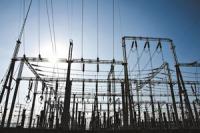-
Cities can save lives, resources by using a vulnerability reduction scorecard
A new planning tool enables communities to effectively reduce their vulnerabilities to hazards across their network of plans – including transportation, parks, economic development, hazard mitigation, emergency management and comprehensive land use.
-
-
Bolstering cyber resilience
In December 2015, the first known successful cyberattack on a power grid was carried out in Ukraine, disrupting the electricity supply for hundreds of thousands of customers for several hours. Since then, concerns have grown across the globe about the potential public health, economic and security impacts of widespread power outages in heavily populated regions. Argonne partners with World Economic Forum in important cyber resilience effort.
-
-
Dutch aquifers bank rainwater to help farmers keep the water running

Climate change is increasing the risk of water shortages across Europe, but researchers in the Netherlands are hoping to ease pressure by generating a steady supply of clean water and heat from deep underground reservoirs known as aquifers.
-
-
Wandering Earth: rocket scientist explains how we could move our planet
In the Chinese science fiction film “The Wandering Earth,” recently released on Netflix, humanity attempts to change the Earth’s orbit using enormous thrusters in order to escape the expanding sun – and prevent a collision with Jupiter. The scenario may one day come true. How could we go about it and what are the engineering challenges?
-
-
The fundamental challenges of living with wildfire
Wildfires can have dramatic impacts on Western landscapes and communities, but human values determine whether the changes caused by fire are desired or dreaded. This is the simple - but often overlooked - message from a collaborative team of researchers.
-
-
Public dread of nuclear power sets limits on its use
Nuclear power has been a part of the American energy portfolio since the 1950s, but for a number of reasons, the general public has long felt a significant dread about it.
-
-
Floods will cost the U.K. billions, but AI can help make sewers the first defense
The U.K. will need to spend £1 billion a year on flood management to avoid the worst consequences of climate change, according to the national Environment Agency. Coastal defenses – including sea walls, buffer areas and evacuation plans – can help to protect towns and cities against flooding from storm surges. But inland flooding caused by excess rainwater requires more nuanced solutions. Today, artificial intelligence (AI) can use data to help make decisions about how water should flow in and around human settlements, to avoid the worst effects of flooding.
-
-
As floods increase, cities like Detroit are looking to green stormwater infrastructure
Urban sprawl meant paving over grasslands and wetlands, making it so water is unable to soak into the ground. Today, that impervious development, coupled with the more intense storms brought by climate change, is making flooding a major issue for many cities. Urban areas are looking for better ways to manage runoff.
-
-
Better earthquake protection for buildings
Researchers examine how buildings with externally bonded fiber-reinforced polymer composite retrofits withstood the 30 November 2018 magnitude 7.1 earthquake in Alaska. By assessing how these buildings held up, the researchers hope to help engineers construct buildings that stand up to natural disasters.
-
-
As planet warms, even little precipitation may disrupt road networks
A new computer model shows that as more rain falls on a warming planet, it may not take a downpour to cause widespread disruption of road networks. The model combined data on road networks with the hills and valleys of topography to reveal “tipping points” at which even small localized increases in rain cause widespread road outages.
-
-
U.S. official: Executive order not needed to ban Huawei in U.S. 5G networks

“We have grave concerns about the Chinese vendors because they can be compelled by the National Intelligence Law in China as well as other laws in China to take actions that would not be in the interests of the citizens of other countries around the world. Those networks could be disrupted or their data could be taken and be used for purposes that would not be consistent with fundamental human rights in those countries,” says Robert Strayer, deputy assistant secretary of state for cyber and international communications and information policy.
-
-
Electricity grid cybersecurity will be expensive – who will pay, and how much?

Russia, China, North Korea and Iran are capable of hacking into the computers that control the U.S. electricity grid. Protecting the grid from hacking would cost tens of billions of dollars. The electricity customers will likely foot most of the bill.
-
-
Signals from distant space could help secure electric substations
Side channel signals and bolts of lightning from distant storms could one day help prevent hackers from sabotaging electric power substations and other critical infrastructure.
-
-
Examining the safety of using dispersants in oil spill clean ups
A new study of the Deepwater Horizon oil spill recovery efforts makes a series of recommendations to federal agencies on how to safely clean up after spills.
-
-
Revisions to National Seismic Hazard model proposed
As many as 34 million people in the U.S.(about one in nine people) are expected to experience a strong level of shaking at least once in their lifetimes. Experts say that the U.S. National Seismic Hazard Model (NSHM) should be revised to reflect the greater likelihood of ground shaking across many locations in the central and eastern United States.
-
More headlines
The long view
Water Wars: A Historic Agreement Between Mexico and US Is Ramping Up Border Tension
As climate change drives rising temperatures and changes in rainfall, Mexico and the US are in the middle of a conflict over water, putting an additional strain on their relationship. Partly due to constant droughts, Mexico has struggled to maintain its water deliveries for much of the last 25 years, deliveries to which it is obligated by a 1944 water-sharing agreement between the two countries.
Trump Is Fast-Tracking New Coal Mines — Even When They Don’t Make Economic Sense
In Appalachian Tennessee, mines shut down and couldn’t pay their debts. Now a new one is opening under the guise of an “energy emergency.”
Smaller Nuclear Reactors Spark Renewed Interest in a Once-Shunned Energy Source
In the past two years, half the states have taken action to promote nuclear power, from creating nuclear task forces to integrating nuclear into long-term energy plans.
Keeping the Lights on with Nuclear Waste: Radiochemistry Transforms Nuclear Waste into Strategic Materials
How UNLV radiochemistry is pioneering the future of energy in the Southwest by salvaging strategic materials from nuclear dumps –and making it safe.
Model Predicts Long-Term Effects of Nuclear Waste on Underground Disposal Systems
The simulations matched results from an underground lab experiment in Switzerland, suggesting modeling could be used to validate the safety of nuclear disposal sites.
